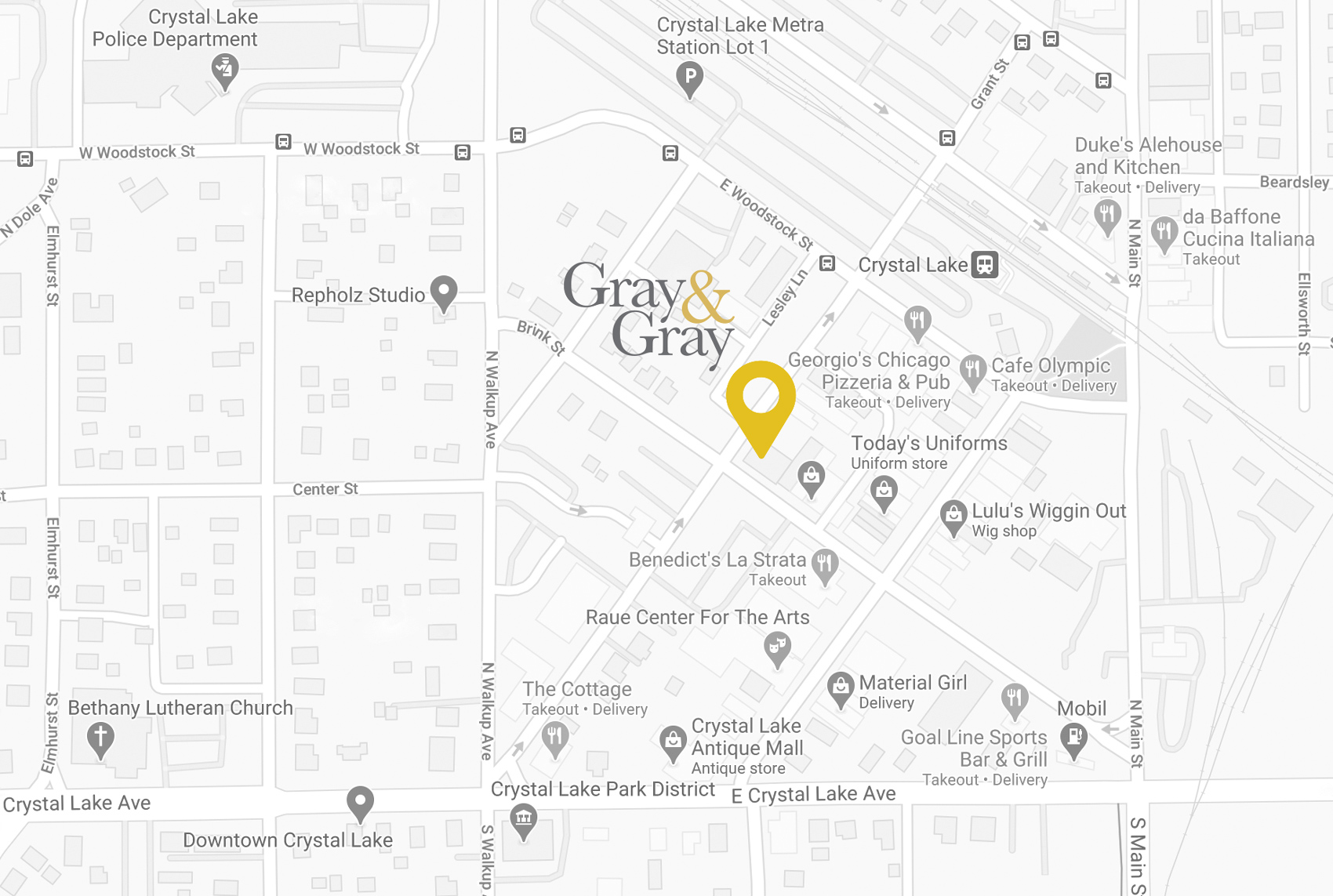Gray&Gray
frequently asked questions
Gray&Gray: General FAQs
Q: Do I Need an Attorney for a Divorce Case?
No. Neither party is required to have an attorney. Depending on the complexity of the issues, as well as whether children are involved, it is still a good idea to consider hiring an attorney as these issues can be difficult to navigate. At a minimum, you should consult with an attorney. Many firms, including Gray & Gray, offer free consultations.
Q: How Do I Choose an Attorney?
There are many associations that can provide names of attorneys, such as the American Academy of Matrimonial Lawyers (in which Attorney Paulette Gray is a Fellow and Past President). Many state and local bar associations have an attorney-referral source. You can also go online and search for attorneys in your area. Talk to friends, colleagues, or relatives who have been divorced to see whether they liked their attorney. You may want to meet with more than one attorney before making your decision.
Q: Can I Change Attorneys During My Case?
Absolutely. Sometimes during a case you and your attorney disagree on how the case is being managed or you simply no longer feel the representation is working any longer. You can fire your attorney at any time (but keep in mind if trial dates are set, you may not be able to continue those date) and your attorney can generally withdraw as your attorney at any time. If you hire a new attorney, a substitution of attorneys can be signed and you then continue with the new attorney.
Q: Can We Use the Same Attorney in a Divorce?
No. This is an absolute conflict of interest.
Q: How Long Does a Divorce Take & How Much Will it Cost?
The answer to each question is the same: it depends. It depends on the issues being litigated, the parties involved, the attorneys involved, and the court’s schedule. Not all issues are worth fighting over, and some of those issues can cost you a lot of money in the end. We can help you choose your battles wisely and, by doing so, help you save on attorney fees and costs.
Q: What If I Don’t Want to Get Divorced?
Unfortunately, you do not have a choice. If your spouse no longer wants to be married to you, you cannot prevent a divorce from happening. You can try to drag it out to see if your spouse will change his or her mind, but in the end, if your spouse wants a divorce it will happen.
Q: Can I Change My Mind About Getting a Divorce After I File?
Yes. Until a judge signs your divorce decree, you can change your mind and withdraw your divorce petition. Keep in mind, however, that if your spouse has a counter-petition for divorce on file and wants to proceed, the just will allow the divorce case to continue. If you both decide to reconcile, you and your spouse would each need to withdraw your respective divorce petitions.
Q: Why Should I Hire Gray&Gray?
The attorneys at Gray & Gray are truly a team. Robert and Paulette are partners in every sense of the word as they are not only law partners, but they are also married. Each of them brings a unique style to every case they handle and they use a team approach to give you the best representation. No, you do not get double-billed, but you do get more for your money. Robert and Paulette are well-known and, more importantly, well-respected by judges and colleagues alike. They are two attorneys who know the law, have the experience and compassion to help you through your divorce, and can fiercely litigate your case when needed.
Q: Can I Appeal the Court’s Decision?
Final decisions can be appealed within 30 days of the entry of the final judgment or order, but the question is whether you have an issue worthy of an appeal. An appeal is not a second bite at the apple or a second trial. Rather, it is the appellate court’s review of the trial court’s handling of the underlying case. As a member of the Illinois Appellate Lawyers Association, Attorney Paulette Gray has experience in handling appeals in all family-law related matters and can discuss your options with you. Attorney Gray can handle appeals regardless of whether Gray & Gray was involved in the underlying trial court case.
Close Accordion
Gray&Gray: Appeals FAQs
Q: What is an Appeal?
An appeal is not a new trial. An appeal is a request by a party (the “appellant”) asking the appellate court to review the decision of the trial court because he or she believes the trial court entered an erroneous decision.
Q: Can I Present New Evidence on an Appeal?
No. The appellate court can only consider what happened in the trial court (review exhibits, review trial transcripts and testimony of witnesses who testified at trial, etc.).
Q: When Can an Appeal be Filed?
An appeal cannot be filed until a final order is entered in the trial court. Temporary orders are not final for purposes of appeal.
Q: Can You Appeal a Temporary Order?
Usually not. In limited circumstances the trial court will can label an order entered during the pendency of the case an “appealable” order, but this is not common.
Q: How Many Issues Can I Appeal?
You are not limited in how many issues can be raised on appeal. However, you should limit your appeal to issues which are of great importance to you. You want your attorney to be able to focus the appellate court’s attention on 1-3 major issues instead of 10 issues. There are also page limitations for your appellate brief and your attorney must be able to effectively argue your position within these page limits. In short, use a rifle - rather than a shotgun - approach.
Q: How Much Does an Appeal Cost?
This depends on how many issues are being appealed, whether you are the appellant (the person appealing) or the appellee (the person answering the appeal), the length of trial, and legal complexity of the issues being appealed. Some lawyers charge by the hour and some lawyers charge a set fee.
Q: Do I Have to Use the Same Lawyer?
No. The advantage of having the same lawyer for the appeal is that this lawyer is familiar with the case. The advantage of hiring a new lawyer is that this brings a fresh, and sometimes more objective, approach to the case.
Q: How Long Does an Appeal Take?
It depends on the issues involved. Some are resolved within a matter of months while others can take longer. Your lawyer is bound by the Rules of the Illinois Supreme Court with regard to time lines. If these deadlines are not followed your appeal can be dismissed. The appellate court will often hear child custody appeals on an “expedited” basis.
Q: What if I Win the Appeal?
If you succeed and the trial court’s decision is overturned, the appellate court can either rule on the issue itself or “remand” the case, that is, send it back to the trial court with specific instructions from the appellate court as to what the trial court should do to correct the errors found by the appellate court.
Close Accordion
815 893 0257 | Call today for a FREE Consultation
Need Help? Tell Us About Your Case.
Fields with an * indicate a required filed.
Gray&Gray Attorneys at Law
40 Brink Street, Suite 103
Crystal Lake, IL 60014
ph: 815 893 0257
pgray@pgraylaw.com
Monday - Friday: 9am - 5pm


